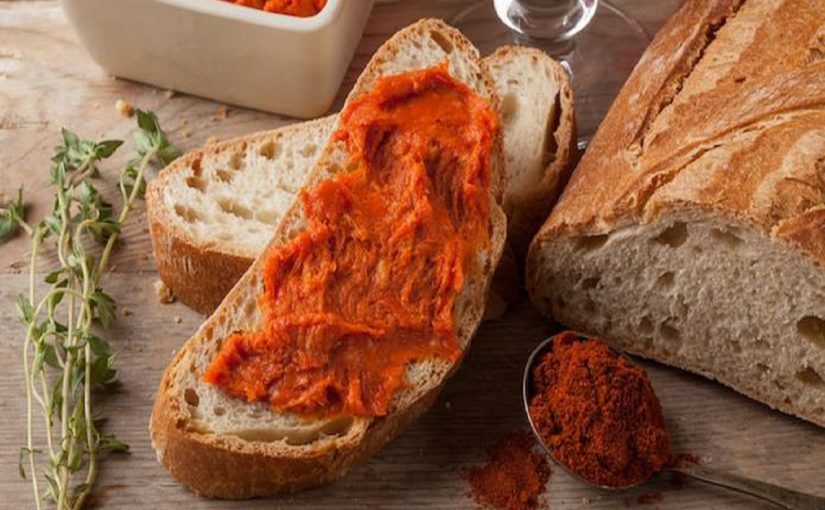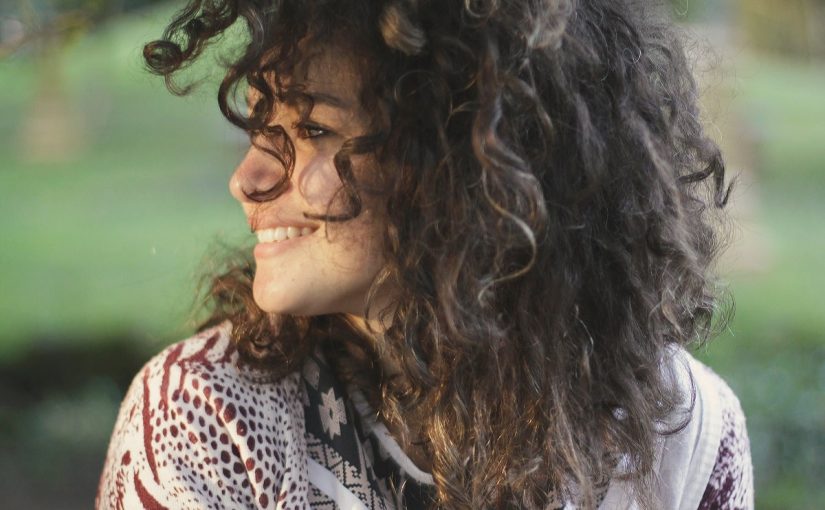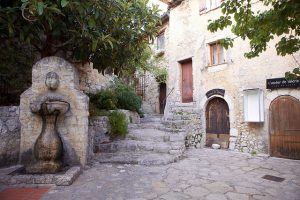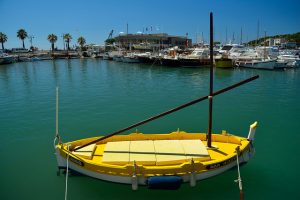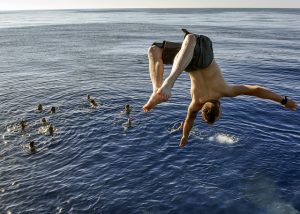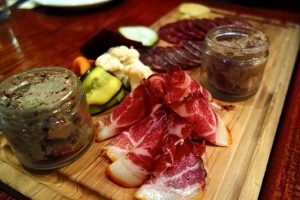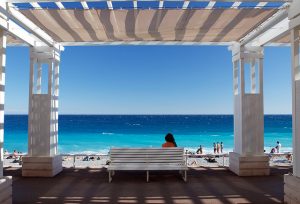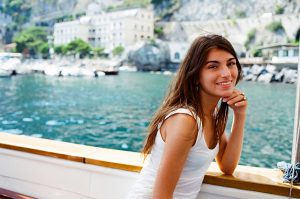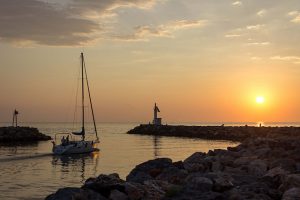18.11.2018
A SLOW EVOLUTION
From its beginning, a poor street salami, to the symbol of Calabrian gastronomy, ‘nduja has become an almost international product, known not only in Spilinga, in the province of Vibo Valentia, but all over Italy and Europe, crossing regional borders in the last twenty years.
It is a food with a long history, so much so that the first traces lead to the nineteenth century. Very poor origin, even the etymology could date back to that period, with possible derivation from “andouille”; the hypothesis is based on the presence of the Napoleonic army in Calabria. That “andouille” was a French sausage based on tripe (and not only) pork.
Nowadays, ‘nduja is a sausage based on pork entrails which, once seasoned, is cut into slices, boiled, cut into small pieces and used to flavor soups (wild fennel, cabbage, beans).
Today the ‘nduja is produced throughout all the region of Calabria, is a spreadable salami demonized by dieticians for its fat content, unsuitable for palates not prone to spicy, loved by everyone else. Indeed, one of its basic ingredient is chilli pepper, which in Calabria is cultivated, especially, on the plateau of Monte Poro, where Spilinga stands.
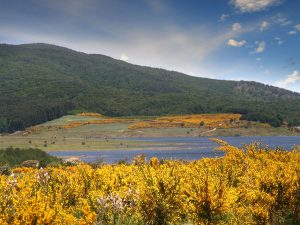
THE RECIPE
The “recipe” of the ‘ndujais simple. Its realization is however complex: the play of balance between lean and fat meat, between sweet and spicy pepper and between meat, hot pepper and salt is made complicated by the degree of spiciness, which varies significantly even among fruits born from the same plant. The artisan can not follow precise doses and therefore to help him, more than the balance, are the experience and the taste.
It is its advantage the uselessness of adding preservatives of any kind: it is just the bactericidal function of the pepper to guarantee food safety.
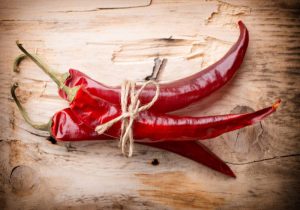
At the contrary, certain excesses are an eventual defect of ‘nduja. Indeed, a very unbalanced portion of salami or the amount of capsaicin (the substance that determines the degree of spiciness) can be often capable to cover the taste of meat and to anesthetize the palate throughout the meal.
It is not, as you might think, a choice made to reduce costs: the chilli, in fact, is much more expensive than meat. Therefore, the secret of a good ‘nduja lies in the correct balance between its components.
However, this is a necessary but not sufficient condition to obtain a perfect salami: in fact, another important role is played by duration of meat processing, which is used to prevent fat rancidity (a rather common defect in low-level products).
Then comes the time of packaging inside the “orba” (the small intestine of the pig, used for the larger size sausages, which are considered the best). Alternatively, is used the “crespone”, a thinner casing, suitable for small-cut nduja.
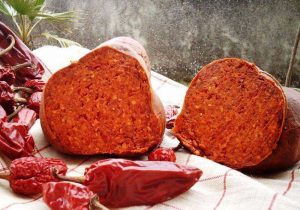
The bagging phase is completely manual.
The aging lasts from 45 to 90 days and is mainly used to dry the dough which, thanks to the high percentage of fat, is always soft. Some artisans add a further organoleptic note through a slight smoking that contributes to the roundness of taste.
The ‘nduja is not produced only in Spilinga, even if it is right here that a good number of quality craftsmen is concentrated there. In Acri, at the foot of the Sila, is indeed present a certain amount of companies; theirs is a small-scale activity and for this reason it can afford a very short supply chain: Calabrian black pigs reared at home and fed with cereals produced on the farm, sweet and spicy pepper grown in the land owned, small machines (al maximum 60 kg of dough at a time, to prevent it from heating up during preparation). The production phase is rapid: no more than a week passes from the time of slaughter to maturing.
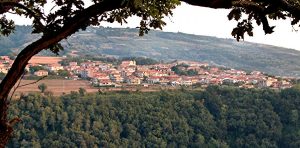
THE NEW LIFE OF ‘NDUJA IN THE KITCHEN
The success of the ‘nduja also passes for its rediscovery by the chefs. ‘Nduja, bread and red wine are a typical combination which enriches plates of pasta with sauce of tomatoes and onions, taken at the market, adding also the perfume of mint and bay leaf.
‘Nduja shall be melt over a low flame, mixing it with the pasta in the sauce and at the end sprinkling it with smoked ricotta or semi-seasoned pecorino, being also recommends to never cook the salami but only to heat it, in such a way to facilitate its break-up.
These dishes are the reinterpretation of a traditional Sunday dish, the macaroni with underwire with pork sauce and ‘nduja.
In the home cooking, moreover, ‘nduja has many other uses: in bean soup, spread on bruschetta, mixed with sheep’s ricotta, in the salad of ripe tomatoes enriched by two other products symbol of Calabrian gardens like oregano and onion Tropea.
IN THE STREET FOOD
The decided taste of ‘nduja is also a protagonist in the street food world: calzoni, panzerotti, potato croquettes, arancini, supplì, pizzas.
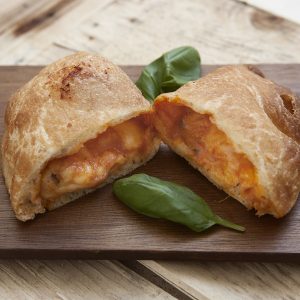
In the street it is a truly extraordinary dish, tasting ‘nduja in combination with a glass of “Pecorello”, an indigenous white vine, or with another local wine, Abbruzzino, accompanying it with an excellent bread kneaded with ‘nduja and, in the autumn, with an emulsion of porcini mushrooms.

